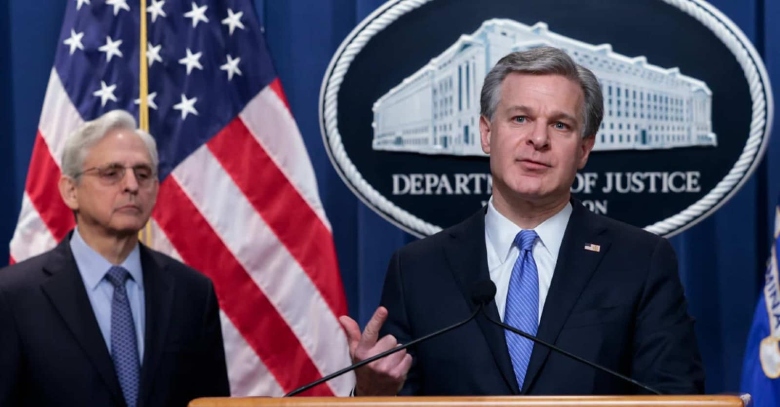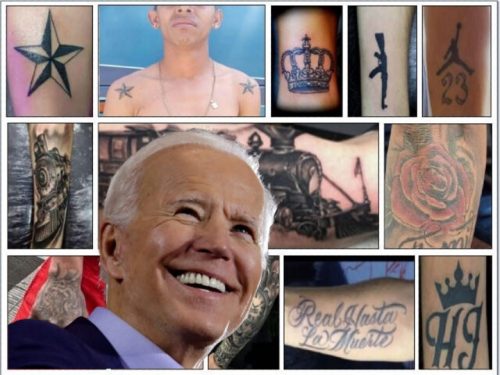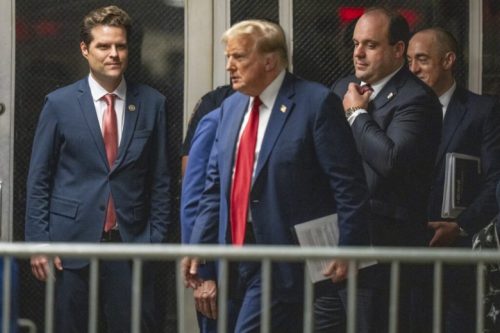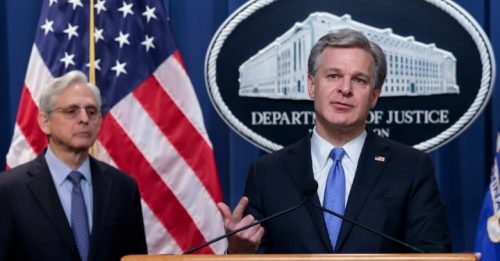The FBI has arrested Anas Said, a 28-year-old Houston resident, on charges of attempting to provide material support to ISIS. According to law enforcement, Said had been plotting a terrorist attack within the U.S., making his home a potential hub for ISIS activities. His arrest last week came after years of surveillance and mounting evidence that he sought to carry out violent acts in alignment with the terrorist group’s agenda.
The FBI apprehended Said at his Houston apartment, citing his alleged plans to attack military recruiting centers and produce propaganda for ISIS. Said had reportedly boasted about executing a “9/11-style” attack if given the resources. FBI Special Agent Douglas Williams highlighted the significance of the arrest, stating, “We stopped a potential terrorist attack from happening right here in Houston! Any day we can publicly say that is a good day.”
The investigation into Said dates back to 2017, when the FBI received a tip about him purchasing stickers with pro-ISIS imagery. These included one featuring the Dome of the Rock overlaid with an ISIS flag and another showing an armed figure with the caption, “Winning the Islamic Nation.”
Said’s attorney, Balemar Zuniga, has pushed back against the severity of the charges, stating, “The indictment only alleges that he supported a terrorist group through the production of videos and propaganda.” Zuniga emphasized that his client has not been charged with directly plotting an attack, despite prosecutors mentioning such plans.
Said appeared in court for a preliminary hearing on Tuesday, where his attorney underscored the absence of explicit charges related to terrorist acts. “Does it seem a bit excessive? Yes,” Zuniga remarked.
The FBI’s interest in Said began years before his arrest. In 2018, agents questioned him four times about his pro-ISIS stickers. During a January interview that year, Said admitted the stickers were meant to show support for ISIS, though he claimed he did not condone violence at the time.
However, further investigation revealed a more troubling trajectory. According to a detention memo, Said began supporting ISIS ideology as early as 2015 after returning from Lebanon. By 2019, he told the FBI he no longer consumed extremist content and focused only on school and sports. Yet, the Department of Justice (DOJ) asserts this was a lie.
Recent evidence provided by Meta Platforms, Inc. (the parent company of Facebook) revealed that Said operated 11 accounts tied to ISIS propaganda. These accounts allegedly showcased his continued support for the group’s violent activities.
The DOJ claims that family members expressed concerns about Said’s behavior during interviews with the FBI. A search of Said’s devices uncovered encrypted messaging apps containing records of his efforts to create and distribute ISIS propaganda.
Despite these allegations, Zuniga insists that Said harbors no inherent animosity toward the U.S. “I think he is certainly passionate about protecting his Islamic religion,” Zuniga said. “I don’t think he has any particular animosity toward the United States itself.”
When FBI agents executed a search warrant at Said’s residence, he reportedly destroyed his cellphone in an attempt to obstruct the investigation. This act of non-cooperation further fueled the government’s case against him.
Said’s arrest is a reminder of the ongoing threat posed by homegrown extremism and the importance of vigilant counterterrorism efforts. The case underscores the challenges faced by law enforcement in tracking individuals who adopt extremist ideologies while residing within U.S. borders.
As the case progresses, the FBI continues to analyze the evidence seized from Said’s devices and online activity. His trial will likely shed more light on the extent of his alleged involvement with ISIS and the potential threats he posed.
The arrest serves as a stark warning about the persistence of terrorist networks and their ability to recruit and inspire individuals across the globe, including in the United States.






